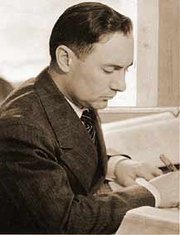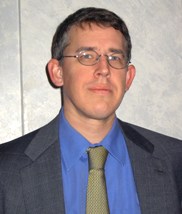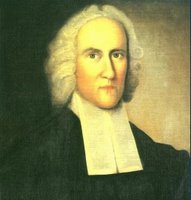
Does one know that the President of the United States in the 1980’s had the initials R.R. if he thinks that Roy Rogers was President then?
Let’s talk about time.
1. Justification: Inductive inference that the clock is working based upon history
2. Belief: Believe as true the time the clock indicates, which is 12:00
3. Truth: It is 12:00
Someone might say that since all the criteria for knowledege have been met, one can know it is 12:00 given inductive-knowledge. However, the 3 criteria justify the belief that it is 12:00 even when relying upon a broken clock! Shouldn't this intuitively bother us? Can we "know" things based upon false information? The problem with induction is that inferences that are rational to maintain can always be false. Let me try to make this even more glaring. Let’s say there is another man in the room who has strong reason to believe that the clock is broken. Accordingly, this man will not rely upon the clock. In fact, this man believes that any justification of the time based upon the clock will be unwarranted. The point should be obvious. The man who is most informed about the clock is not able to know the time, whereas the man with less information about the clock would be able to “know” the time if inductive inference allows for knowledge! If anyone is looking for a
reductio, then here it is. Given and inductive-knowledge, having less information can be the source of more knowledge, and having more information can cause one to rationally lose the knowledge he once had. Ignorance truly would be bliss! It is one thing to have a justification for a belief and quite another thing to justify the truth value of what is believed. The latter can only come through revelation and deduction.
Now let me sum this up. The first man’s inference about the clock was rational because based upon history the clock had an extremely high probability of working; say 99.9%. The second man had an entirely different rational inference based upon his history with broken clocks. He believed that there was less than 1% chance of the clock working the day after he observed it not working. Both men were making rational inferences based upon their finite perspectives and information. At the very least, given inductive-knowledge, deductive or revelatory knowledge becomes something of a different order and not merely a difference of degree. We need to distinguish the two. I prefer applying the term
knowledge to more than inductive inference.
Does anybody really know what time it is? Does anybody really care?Let’s say that there is one clock in the world that is the standard of time. In other words, let’s assume that it indicates the “true time.” Now let’s say we were to hook up a digital transmitter to the clock that would output the time to a series of data acquisition systems all running in parallel. Would all of the systems record the same time at any exact instance? No. How can we arrive at the true time then? Some might take the median time of all the times recorded and call it the true time. Someone else might take the arithmetic mean, whereas someone else the mode. Let’s say we were to conclude that at a particular instance the true time was 12:00 noon +/.000000000000000000000000001 milliseconds. How many points of time can fit between the variance? Well an infinite number of course. Accordingly, what is the probability of one knowing the true time? Well 1/infinity of course. Well, what is 1/infinity? Well zero of course. Consequently, no matter what the time is, nobody knows it!
Finally, induction always operates under the formal fallacy of asserting the consequent. It would be misleading, however, to say that inductive reasoning is always fallacious. Rather, by repeated tests through asserting the consequent a veracity of belief can be obtained. “If A, then B; B therefore, A” is of course fallacious. However: “If A, then B; B therefore, A would appear to have more veracity...” is of course the basis for science and indeed valid. To say that science cannot yield specific truth has great shock value but all such a statement really reduces to is that induction is not deduction, which is no great discovery - or at least it ought not be. Some have argued that induction can "prove" a truth value of a projection with some true degree of variance. This however is false, since to "prove" the
truth value of any variance would require one to first "assert the consequent!" For instance: "If the variance of any projection has been proved by certain means, then by implementing those means to this set of circumstances I prove the
truth of the variance. I have implemented those means to this set of circumstances, therefore, I have proved the
truth of the variance." The fallacy is obvious. Again, science can only show how things
might appear; we may not say that it is "true" that things
will appear as they have in the past. And to say that it is true that things "might" appear a certain way, is to say that it is true that they might not. As for variances, all we can say is that it would appear, based upon the past, that variances are rational to maintain when arrived at inductively. However, we cannot even arrive at a truth value for the variance without asserting the consequent. Nonetheless, a variance can have veracity just as that which it
surrounds can have veracity.
I’m sympathetic to the idea that we might actually know things through induction. However, I would say that we cannot know that we know things through induction. If we do know things through induction it is because God has granted a necessary, causal relationship to those things that appear to us as necessary. God would also have to grant us some warrant to believe that things must be the way they are. Does He do this? I don’t know nor do I think we can know.
What’s the beauty in all of this? Well, for one thing - I am more certain that Jesus lives than I am that toothpaste will squirt out of the tube in the morning!
Ron
Counter since: 9/6/2006
 Hit Counters
Hit Counters



